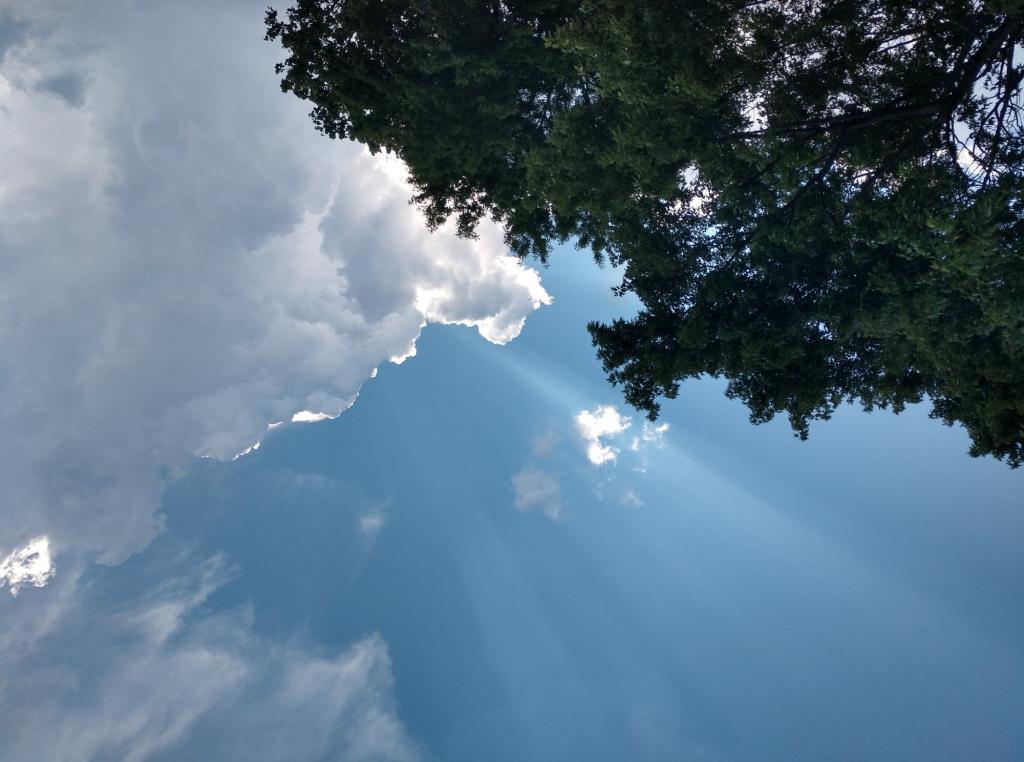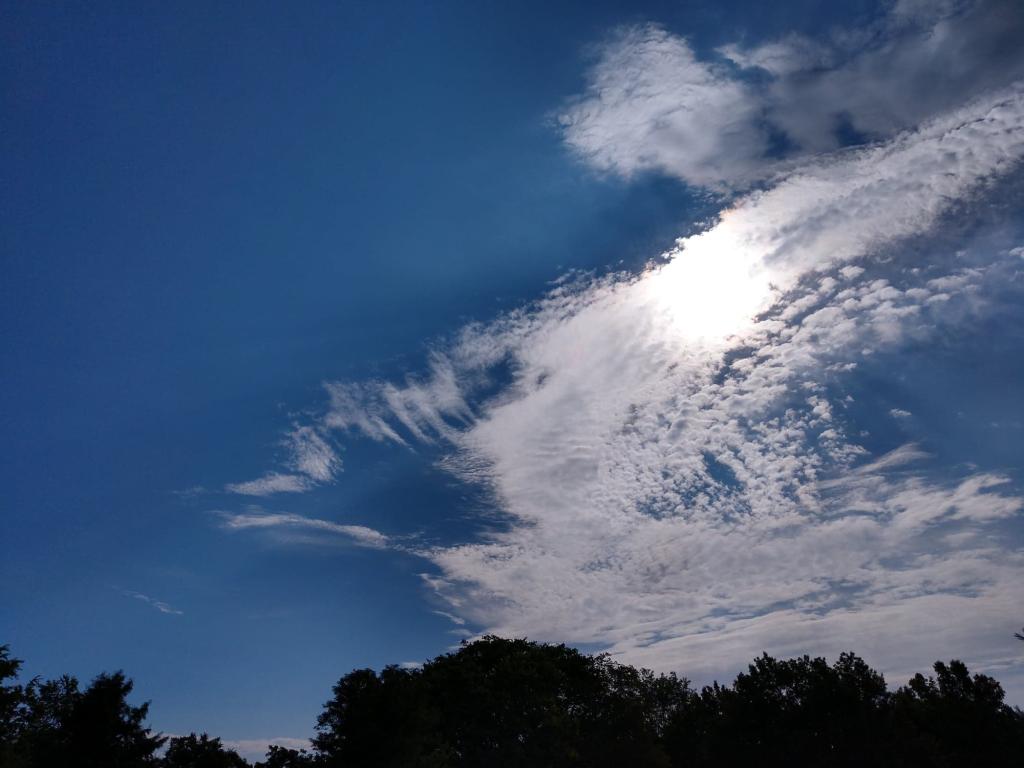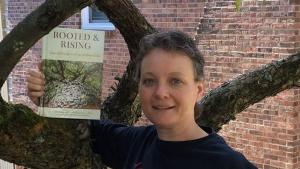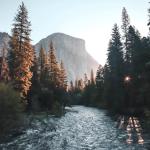God’s Creation preaches? How can this be? We have to tune our eyes, ears, hearts, and minds to the language of Creation.
Here are ideas for reading and preaching Psalm 19, assigned for Jan. 23rd, 2022, the third Sunday after Epiphany in the Revised Common Lectionary. This is part of the EcoPreacher 1-2-3 series to equip pastors and congregations for engaging the Bible through an ecological lens.

Psalm 19:1-4
1 The heavens are telling the glory of God; and the firmament proclaims God’s handiwork.
2 Day to day pours forth speech, and night to night declares knowledge.
3 There is no speech, nor are there words; their voice is not heard;
4 yet their voice goes out through all the earth, and their words to the end of the world.
Eco-Exegesis
Eco-exegesis is a method of interpreting the biblical text through a green lens using the principles of ecological theology. For this passage, we turn to Deep Calls to Deep: The Psalms in Dialogue Amid Disruption by William P. Brown (Nashville, TN: Abingdon Press, 2021).
The creative genius of Psalm 19, according to William Brown, Professor of Old Testament at Columbia Theological Seminary, is the way in which Torah (meaning the Hebrew Scriptures) and Creation are juxtaposed to give God glory and to call people into ethical living.
The first half of Psalm 19 describes Creation giving glory to God in its own way. When v. 1 says that the heavens are “telling the glory of God” and that the firmament “proclaims” God’s handiwork, the Hebrew words are worth noting. Both the word for “tell” (sapar, pronounced saw-far) and the word for “proclaim” (nagad, pronounced naw-gad) can mean to recount, declare, announce, make known, or inform.
In a sense, we might say the Psalmist is imagining the sky and earth as preachers!
Further, the Psalmist says that the days “pour forth speech.” In Hebrew, the word is naba which means to flow or bubble up. And the night is said to “declare knowledge,” literally to breathe forth wisdom. What lovely poetic imagery! We can think of each day as a gurgling spring or mighty river, and each night as exhaling wisdom through hushed breezes beneath the stars.
In other words, time itself, as measured out in days and nights, preaches about God its Creator. As Brown explains, “By way of illustration, the psalm showcases the sun, whose daily ‘path’ is taken with vigor and joy, from east to west, the most visible display of creation’s discourse of God’s glory” (193).

But here’s the thing.
Creation’s language is all its own.
Verses 3 and 4 tell us that nature does not use human speech or words or voice for its declarations about God. Even still, their voice “goes out through all the earth and their words to the end of the world” (v. 4).
This means that if we want to understand this language, we will have to learn Creation’s vocabulary on its own terms.
How do we do this? How do we study the language of God’s Creation in order to grasp its preaching, its wisdom, and, as v. 11 says, its warnings? This is where Torah comes to the fore. Torah sustains the human will for ethical and moral uprightness. In other words, Torah is not merely “the law” to uphold; Torah upholds us through wisdom. It’s a symbiotic relationship!
Thus, Torah and Creation reinforce each other. Just as the heavens and earth communicate God’s glory, so does Torah give wisdom and life. Humans are intended to have a robust, embodied relationship with both Torah and Creation. Like the sun running its path with joy, sustaining all life, Torah enlightens and restores the human heart and mind for ethical living.

Don’t ignore the warning
But the Psalm also imparts a warning (zahar in Hebrew) about the danger of succumbing to those who are arrogant and insolent, who have no regard for Torah or Creation. So the psalmist implores God to restrain him and to not allow the arrogant ones to take control of his will. Only in this way will he be kept from sin and “innocent of great transgression” (v. 13).
The psalm ends with the words often prayed by preachers just as they are beginning their sermon. “Let the words of my mouth and the meditation of my heart be acceptable to you, O Lord, my rock and my redeemer” (v. 14). Thus, for the preacher intent on speaking of both Creation and Torah, Psalm 19 comes full circle. In Psalm 19, Creation, Torah, the community, and the individual are all connected and mutually interdependent as they are sustained by God’s love and justice.
1 Eco-Idea
The Eco-Idea is one succinct statement that tells us who God is and/or what God does in relation to Creation and how we should respond as people of faith. The Eco-Idea for this passage is:
Psalm 19 shows us that both Creation and Torah proclaim God’s glory and give us wisdom for living in relationships guided by moral and ethical righteousness.
2 Eco-Questions
Eco-Questions are what we can ask to help a congregation draw out the implications of the Eco-Exegesis and Eco-Idea.
- How can our church help people listen to the “preaching” of Creation? Are there people in our congregations or communities who work closely with the land, waters, natural places, farms, or forests? How might we engage them as we are tuning our eyes, ears, hearts, and minds to understand what nature is trying to tell us?
- What are ways that people of faith can address the climate crisis as a matter of fulfilling God’s requirements for ethical living? If Psalm 19 warns against arrogance and ignoring God’s commands, what changes will we need to make individually and systemically to restrain our consumerism and exploitation of people and planet?

3 Eco-Actions
Eco-Actions are ways that a congregation might respond to the Eco-Idea and Eco-Questions. One of these possibilities may have salience for your ministry context.
- Begin planning now for your congregation’s Creation-centered worship service and educational events for Earth Day in April. Identify biologists, naturalists, climate scientists, farmers, those who fish, beekeepers, master gardeners, or others who can be part of a panel or forum. Ask them to speak about what they have learned from God’s Creation that can guide our faith and living in community.
- The season of Epiphany began with the Magi following the star to find Jesus. Plan a “night walk” with youth and other members of the congregation to discern how the night “declares knowledge” (v. 2). How are the levels of light pollution in your area? Visit the International Dark-Sky Association for “Light Pollution Solutions”: https://www.darksky.org/light-pollution/light-pollution-solutions/
- Call together a group of people who can look into putting solar panels on the church building or property. As Psalm 19 reminds us, the sun “runs its course with joy” without fail. Congregations can draw on the sun’s power for their electricity, hot water heat, and outdoor lighting. If your congregation has already gone solar, offer to advise and mentor a neighboring congregation as they undertake the process. Visit https://news.energysage.com/solar-panels-for-churches/ to learn more.
Indeed, God’s Creation preaches! Let those who have ears, hear, and those who have eyes, see. Let those who have minds, understand. And let those who have hearts, open them to the preaching of God’s Creation.
EcoPreacher 1-2-3 is a partnership between the Rev. Dr. Leah Schade and the Interfaith Center for Sustainable Development, publishers of Eco Bible, a Jewish ecological commentary on the Hebrew Scriptures. EcoPreacher 1-2-3 provides Creation-centered sermon preparation that is short, accessible, and based on a solid biblical foundation. To see other EcoPreacher ideas and to sign up to receive future EcoPreacher 1-2-3 installments, click here.
Read also:
Birds, Church, and Climate Change: Spotlight on Corina Newsome
5 Steps for a Healthy Pastor, Congregation, and Planet
Creation-centered Lenten Devotional: For the Beauty of the Earth
A Dozen Bible Passages for Preaching a Creation-Care Sermon

The Rev. Dr. Leah D. Schade is the Associate Professor of Preaching and Worship at Lexington Theological Seminary in Kentucky and ordained in the ELCA. Dr. Schade does not speak for LTS or the ELCA; her opinions are her own. She is the author of Preaching in the Purple Zone: Ministry in the Red-Blue Divide (Rowman & Littlefield, 2019) and Creation-Crisis Preaching: Ecology, Theology, and the Pulpit (Chalice Press, 2015). She is the co-editor of Rooted and Rising: Voices of Courage in a Time of Climate Crisis (Rowman & Littlefield, 2019). Her latest book, co-written with Jerry Sumney is Apocalypse When?: A Guide to Interpreting and Preaching Apocalyptic Texts (Wipf & Stock, 2020).
Twitter: @LeahSchade
Facebook: https://www.facebook.com/LeahDSchade/













